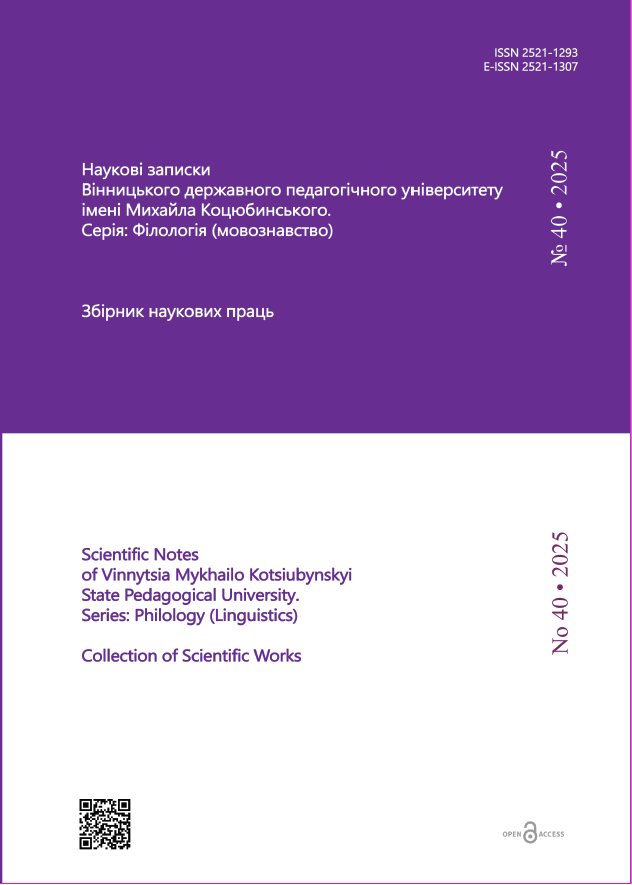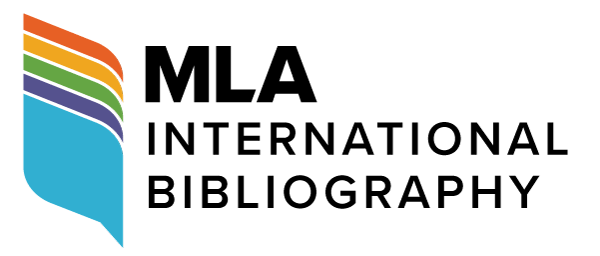Developing intercultural competence through pre-translation analysis of Ukrainian tourist guides into English
DOI:
https://doi.org/10.31652/2521-1307-2025-40-16Keywords:
intercultural competence, pre-translation analysis, travel guide texts, cultural awareness, cultural sensitivity, culture-bound unitsAbstract
This paper explores the development of cultural translation skills and, ultimately, students’ intercultural competence during the pre-translation analysis of Ukrainian travel guide texts. Though intercultural competence have been studied by a considerable number of authors it still needs clarification and modification due to new challenges emerging in the contemporary globalizing translation landscape that call for cultural mediators who could ensure effective communication between different ethnic groups and different cultural worldviews. The purpose of the study is to examine how the pre-translation analysis could foster cultural awareness by encouraging trainees to recognize diverse ways of communicating similar situations across cultures. We argue that pre-translation analysis plays a crucial role in shifting students’ perceptual stance, prompting a cognitive transition into a different cultural perspective. This stage broadens their understanding of new communication patterns rather than merely focusing on handling culture-bound units. The approach adopted in the study is student-centered, encouraging learners to engage in discussions, express their opinions on cultural translation strategies, and reflect on their decision-making process. Findings suggest that pre-translation analysis serves as a foundational step in shaping cultural translation skills and, consequently, developing students’ intercultural competence. The proposed instructional strategies aim to create a cognitive shift that facilitates risk-taking. Instead of providing definitive translations, instructors encourage group collaboration, allowing students to explore various possibilities and select the most appropriate solutions. The study highlights the effectiveness of discussion-based learning in empowering students to make translation decisions regarding cultural elements. Developing intercultural competence in translation trainees requires activities such as analyzing differences in the communication styles of promotional texts in the source and target cultures, adapting cultural references for better reception, and balancing the representation of both cultures in translation output. These activities engage students in strategic translation planning while considering the purpose of the travel guide and the expectations of the target audience. Furthermore, they help maintain cultural awareness and sensitivity, equipping trainees with the skills to navigate cultural challenges. In summary, this study underscores the importance of a student-centered approach in modern translation education. It advocates for authentic translation tasks, problem-solving activities, and collaborative learning methods to enhance students' intercultural competence and overall translation skills. A natural progression of this work is to analyze teaching strategies of cultivating trainees’ intercultural competence that could be adopted during the other procedural stages of translation process, that is translation proper and post-translation editing.
References
Bassnett, S. (2014). Translation studies. New York, Routledge (in English). DOI: https://doi.org/10.4324/9780203488232
Cragie S., Pattison A. (2018). Thinking English Translation. London/New York, Routledge (in English). DOI: https://doi.org/10.4324/9781315229478
Cranmer, R. (2015). Introducing Intercultural Communication into the Teaching of Translation. Linguistics, 19 (4), 155-173 (in English).
Katan, D. (2008). Translation as Intercultural Communication. The Routledge Companion to Translation Studies. London/New York, Routledge, 74-92 (in English).
Katan, D. (2009). Translator Training and Intercultural Competence. [In] S. Cavagnoli, E. Di Giovanni, R. Merlini La ricerca nella comunicazione interlinguistica. Modelli teorici e metodologici. Milan, Franco Angeli, 282-301 (in English).
Kelly, D. (2000). Text Selection for Developing Translator Competence: Why Texts from the Tourist Sector Constitute Suitable Material. [In] Ch. Schäffner, B. Adab (Еds.) Developing Translation Competence. Amsterdam/Philadelphia, Benjamins, 157-167 (in English). DOI: https://doi.org/10.1075/btl.38.15kel
Kelly, D. (2007). A Handbook for Translator Trainers. Manchester, St. Jerome (in English).
Kroneman, D. (2019). Review of: What is Cultural Translation? By Sarah Maitland. Journal of Translation, 15 (1), 35-37. https://doi.org/10.54395/jot-8n25j (in English) DOI: https://doi.org/10.54395/jot-8n25j
Madkour, M. (2018). The Impact of Culture and Intercultural Competence. Conference Proceedings of RAIS Research Association for Interdisciplinary Studies, November 19-20, 2018. https://rais.education/wp-content/uploads/2018/11/014MM.pdf (in English)
Pym, A. (2003). Redefining Translation Competence in an Electronic Age. In defence of a Minimalist Approach. Meta, vol. 48, No 4, 481-497. http://www.erudit.org/revue/meta/2003/v48/n4/008533ar.html (in English) DOI: https://doi.org/10.7202/008533ar
Schäffner, C. (2004). Understanding Bohemian Villages … and Greek. Cultural Competence in Translation. [In] G. Androulakis (eds.) Translating in the 21st Century: Trends and Prospects. Thessaloniki, University Studio Press, 486-494 (in English).
Tomozeiu, D., Koskinen, K., D’Arcangelo, A. (2016). Teaching Intercultural Competence in Translator Training. The Interpreter and Translator Trainer, vol 10, issue 3, 251-267 (in English). DOI: https://doi.org/10.1080/1750399X.2016.1236557
Tymoczko, M. (2007). Enlarging Translation: Empowering Translators. Manchester, St. Jerome (in English).
Tymoczko, M. (2014). Cultural Translation and Empowerment. London, Routledge (in English).
Yarosh, M (2015) Translator Intercultural Competence: A model, learning objectives and level indicators. [In] Y. Cui and W. Zhao (eds.) Handbook of Research on Teaching Methods in Language Translation and Interpretation. IGI Global, Hershey (in English). DOI: https://doi.org/10.4018/978-1-4666-6615-3.ch010
Yarosh, M., Gonzalez J. M., & Deardorff D. K. (2017). Intercultural Competence. Developing generic competences outside the university classroom. Granada, Universidad de Granada, 243-267 (in English).
Yajima, Y., & Toyosaki, S. (2015). Bridging for a Critical Turn in Translation Studies. Power, Hegemony, Empowerment. Connexions – International Professional Communication Journal, 3 (2), 91-125 (in English).









